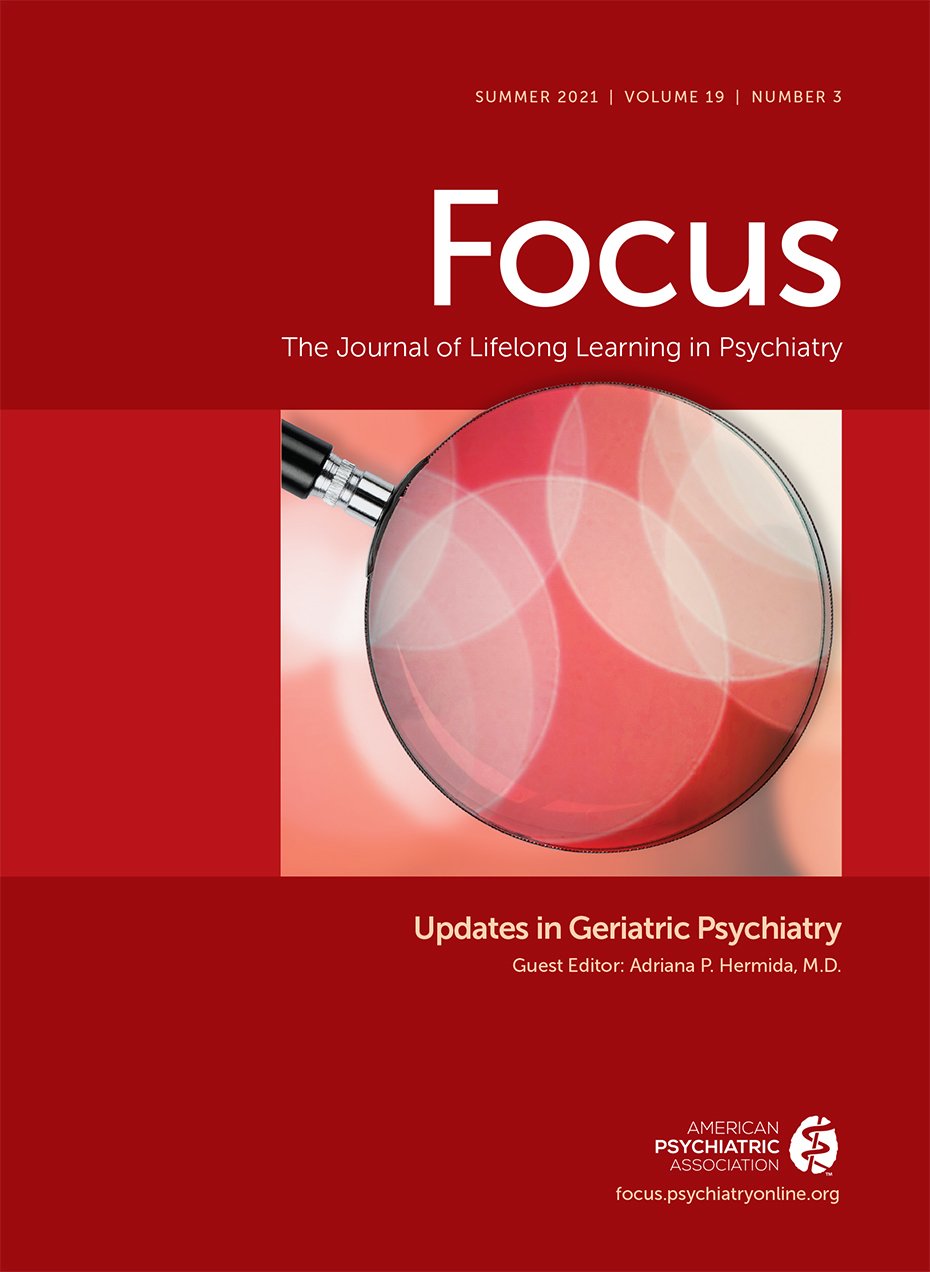Personality Disorders in Older Age
Abstract
Personality disorders are among the most common mental disorders in older age and are associated with a range of negative outcomes in physical and emotional health as well as in interpersonal functioning. Several screening tools have been validated with older patients and can aid in diagnosis. The presence of a personality disorder is associated with increased risk of cognitive decline, and cognitive disorders may mimic personality disorders. As a result, an evaluation of cognitive function is an essential part of assessing for a personality disorder. Emerging evidence points to the promise of dialectical behavioral therapy and schema therapy for older patients with personality disorders. Second-generation antipsychotics and mood stabilizers have been found to be effective for some personality disorders in the general adult population, but no such studies have been conducted with older adults.



